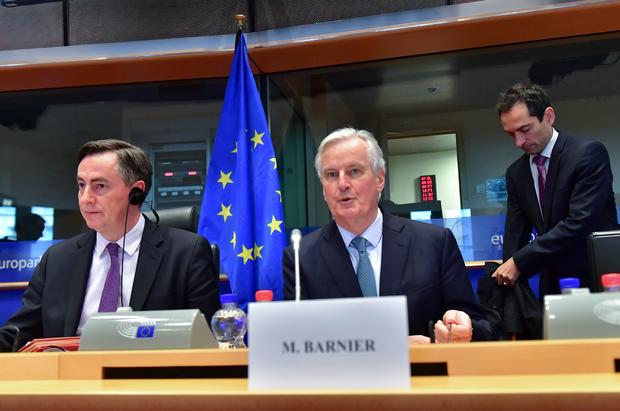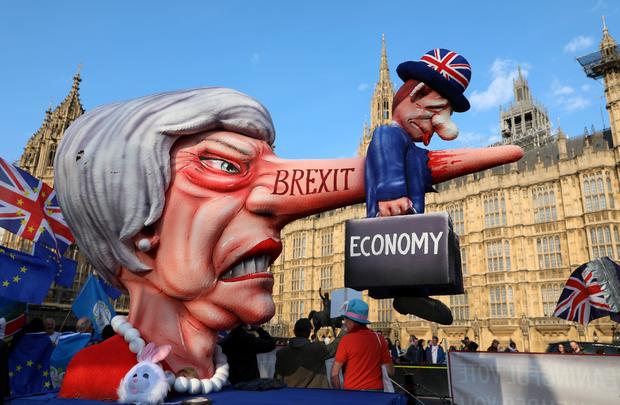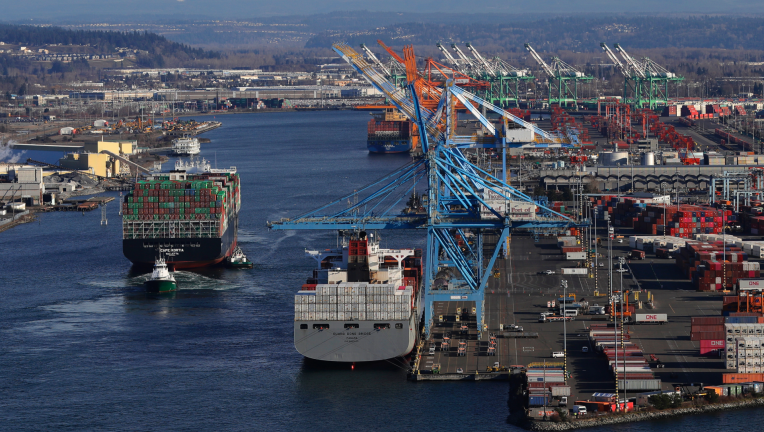The European Union’s chief negotiator Michel Barnier said Tuesday that Britain’s exit from the EU without a deal was becoming “day after day more likely.” He issued the warning the morning after the U.K. Parliament again rejected alternatives to Prime Minister Theresa May’s unpopular divorce deal.
Despite the downbeat assessment, Barnier said that “we can still hope to avoid it” through intensive work in London ahead of an April 10 summit. A no-deal Brexit could come as soon two days after that.
He urged the feuding lawmakers in London to back the plan that May spent more than two years negotiating with the EU, calling it the only hope.
“If the U.K. still wants to leave the EU in an orderly manner, this agreement, this treaty is and will be the only one,” he said Tuesday in Brussels.
Despite the difficulties of a chaotic exit, “the EU will be able to manage,” Barnier said, although he warned that “not everything will be smooth.”
Exit without a deal would affect trade and travel overnight, with new checks on borders and new regulations on dealings between Britain and the 27 remaining EU nations. While the exact ramifications of an unprecedented EU withdrawal remain unclear, many — including the U.K. government’s own central bank — have warned that the impact on the British economy could be dire.
A long list of global corporations have already announced plans to relocate their European headquarters from London to other cities in the EU over Brexit, and others have already shifted some personnel and put contingency plans in place to move more out of the Britain.
May gathers her cabinet
May was embarking on a marathon session with her Cabinet on Tuesday to try and find a way to avert a no-deal exit from the Union. Cabinet members arrived for a meeting expected to last five hours amid calls for compromise to prevent the potentially devastating crash out.
The government has been pushing for a fourth vote on May’s deal, with Education Secretary Damian Hinds saying the agreement already represents a compromise between all sides in the Brexit debate.
Hinds told CBS News partner network BBC News that the deal was “a good balance, and I hope colleagues can get behind it.”
While there was no majority in favor of any of the four options voted on Monday night, the votes did reveal a preference among lawmakers for a softer form of Brexit — but no clear way to make that happen.
The narrowest defeat — 276 votes to 273 — was for a plan to keep Britain in a customs union with the EU, guaranteeing smooth and tariff-free trade in goods. A motion that went further, calling for Britain to stay in the EU’s borderless single market for both goods and services, was defeated 282-261.
What is Brexit?
The United Kingdom helped to create the European Union more than six decades ago, and officially joined the tightly-knit common economic bloc more than four decades ago. Brexit, or the British exit, is the term used to describe the British public’s decision to bail out of that union in a 2016 public referendum, and the ensuing process of doing so.
There are a few basic principles that bind the 28 (probably soon 27) member states, which basically state that goods and people must be permitted to flow freely across each other’s borders. In exchange, each individual member state benefits from the collective bargaining power of the Union in the global economy — a huge advantage as, collectively, the EU represents the world’s second biggest economy after the U.S.
Another benefit is the standardization of regulations across Europe. That means if you buy medicine or food, for instance, in any of the members states, you can be relatively confident that it will be up to the same safety standards.
But all the bureaucracy and rules and regulations that come with such a partnership have their downsides. Some sovereignty is, by default, ceded by members states to the larger bloc. For instance, all nations are subject to collective human rights and trade laws, which are arbitrated by European courts. Pro-Brexit Brits, both in public and Parliament, believe too much independence has been given up to the EU — particularly where it concerns border controls and immigration — and they want it back.
Taking it back, it can be said almost unequivocally, has not proven to be nearly as simple or as financially beneficial as it was suggested it would be by the people who led the charge for Brexit in the first place.
Most polls now show that if a new referendum was held today, a slim majority would vote against leaving the European Union. But holding a new public vote — which the pro-Brexit camp insists would be undemocratic — is a political hot potato that still has too little support in Parliament. And the window, as Barnier made clear on Tuesday, is closing fast.



